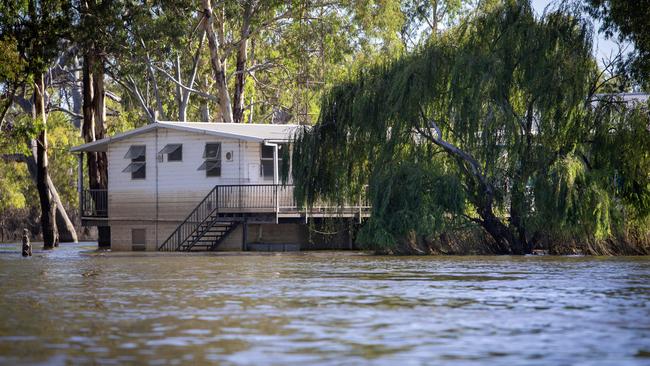Insurance costs hurting households and causing policy cancellations
Living cost pain and high premiums are prompting people to take drastic steps with their home, car, life and health insurance.
National
Don't miss out on the headlines from National. Followed categories will be added to My News.
Households are risking their financial security by cutting back or cancelling insurance cover as living costs and surging premiums hit hard.
New research has found that almost 40 per cent of people living in natural disaster areas have cancelled home insurance cover after premiums spiked, while insurance specialists say others are seeking ways to spend less on car, home, health and life insurance.
Insurance was one of the big cost increases last financial year in official CPI inflation data, up 14 per cent, and it is expected to increase again, but there are ways to reduce premiums without losing all protection.
Comparison website Mozo’s research found the average household insurance policy was $316 more expensive than last year, but costs had climbed 30-40 per cent in areas more likely to suffer from natural disasters and “close to two in five” people impacted by this had cancelled cover.

Insurance is one of the main expenses people will reduce, the survey of more than 2100 people found. Baby Boomers are more likely than others to cancel.
Mozo spokeswoman Rachel Wastell said the rising cost of living was pressuring household budgets.
“As insurance is often seen as a grudge expense because it’s only when something goes wrong that you realise how important it really is, some are seeing this as an easy way to cut back on their expenses without causing any immediate impact,” she said.
“The amount of Australians that have resorted to cancelling their home insurance because they can’t afford it is shocking.
“Cutting back on your insurance too severely can leave you out of pocket in the long run, and as we have seen across Australia in recent years, not having insurance when floods and bushfires occur can leave you in a very precarious position.”
Financial advisers have reported more people cancelling or cutting back life insurance and health insurance policies too.
KPMG Australia’s latest general insurance quarterly review found despite home and car insurance climbing at least 14 per cent in 2022-23, insurers were still losing money after “severe weather-related events impacted the results of both the 2022 and 2023 years”.
KPMG insurance partner Scott Guse said premiums were expected to keep climbing this financial year.
“The reason why I believe they will continue to rise is home insurers lost $200 million across the industry in the last 12 months,” he said.
“It’s not sustainable for insurance companies to lose that sort of money so they are going to increase prices to turn that position around.”

However, changing weather patterns from La Nina to El Nino could be positive for insurers despite an increased risk of bushfires.
“Floods and cyclones are much more costly to the industry than a bushfire is,” Mr Guse said.
He said some customers were scaling back cover while others were changing their policies to make them more affordable.
“The first step people do is increase their excess, and that reduces their premium.”
Some people were prepared to pay a $2000 or $3000 excess for the security of having protection from losing their home, Mr Guse said.
There could be relief on the horizon for premiums, he said. “If we have an absence of major weather events, which is quite possible, I think we will see premiums plateau (after 2023-24).”
Mozo’s Ms Wastell said people could reduce insurance premiums by:
• Increasing excesses.
• Avoiding paying a “loyalty tax” by blindly renewing policies without checking for better deals.
• Considering buying policies online.
• Seeking multi-policy discounts or bundled insurance packages.
• Increasing security features to show insurers they were better protected.
“If you haven’t shopped around for a better deal, now is the time to do so,” she said.
More Coverage
Originally published as Insurance costs hurting households and causing policy cancellations





